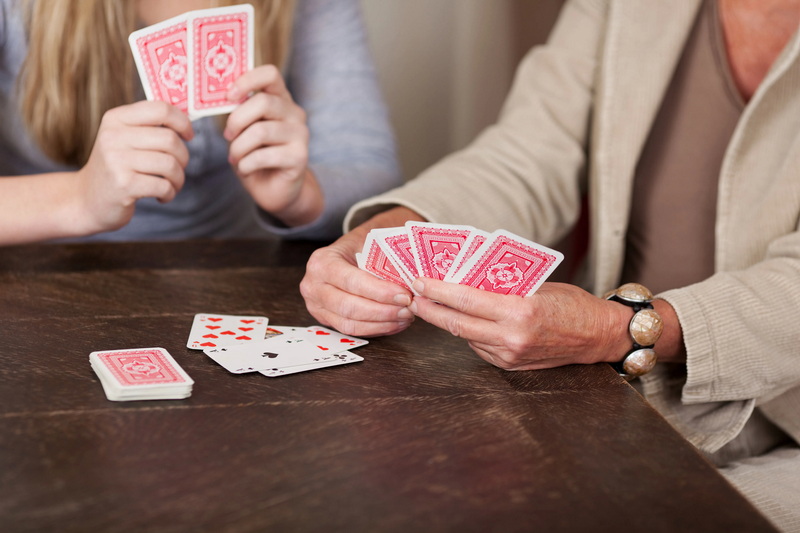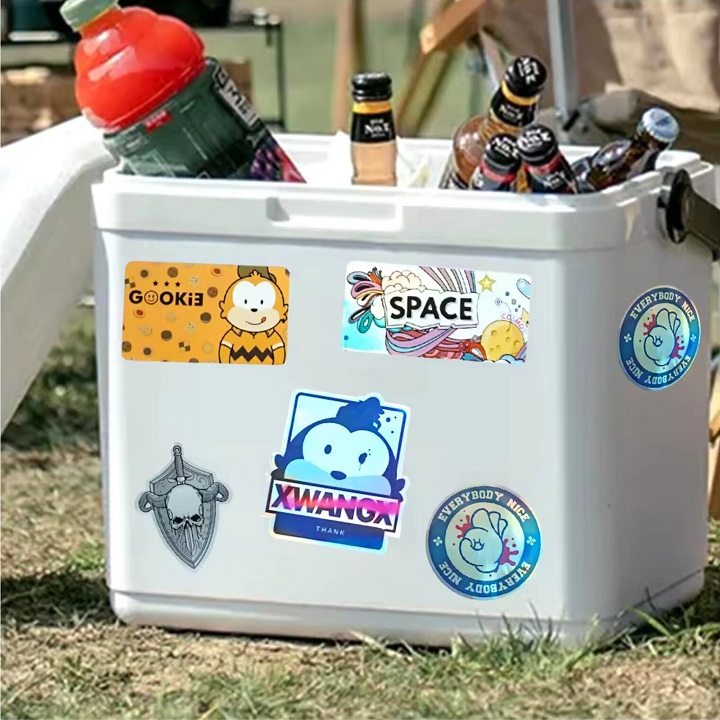Content Menu
● Classic Card Games for Two Players
>> Cribbage
>> Gin Rummy
>> War
>> Crazy Eights
● Unique and Modern Card Games for Two Players
>> Scopa
>> Lost Cities
>> 7 Wonders Duel
● Conclusion
● FAQ
>> 1. What are some good card games for couples to play?
>> 2. What is the easiest card game to learn for two players?
>> 3. What card game is most similar to Uno but can be played with a standard deck?
>> 4. Are there any trick-taking games that are good for two players?
>> 5. Which card game is best for strategic players?
● Citations:
Playing card games is a timeless form of entertainment, offering a blend of strategy, luck, and social interaction[1]. While many card games are designed for larger groups, numerous options cater specifically to two players[1]. These games provide an intimate and engaging experience, perfect for couples, friends, or anyone looking for a stimulating activity[1]. This article explores a variety of card games suitable for two players, ranging from classic favorites to more unique and modern options[1].

Classic Card Games for Two Players
Cribbage
Cribbage is a classic card game dating back to the 17th century, instantly recognizable due to the iconic board used for scoring[6]. It is a trick-taking game that combines elements of luck and skill, making it accessible to beginners while still offering strategic depth for experienced players[6].
Objective: To score points by forming various card combinations during the play and pegging them on the cribbage board.
Deck: A standard 52-card deck.
Gameplay:
1. Dealing: Each player is dealt six cards.
2. The Crib: Each player discards two cards into the "crib," a separate hand that will be scored by the dealer.
3. The Starter Card: A card is cut from the remaining deck to become the "starter" card. If the starter card is a Jack, the dealer immediately scores two points ("his heels").
4. The Play: Non-dealer leads by playing a card, announcing its value. Players take turns adding cards to the pile, without exceeding a total value of 31. Points are scored for combinations such as pairs, runs (sequences), and sums of 15.
5. The Show: After the play, each player scores their hand, combining it with the starter card to form combinations. The dealer also scores the crib.
Scoring:Points are awarded for various combinations, including:
- 15: Two points for any combination of cards totaling 15.
- Pair: Two points for a pair of cards with the same rank.
- Run: One point for each card in a sequence of three or more cards.
- Flush: Four points for a hand of four cards of the same suit (five points if the starter card is also of that suit).
- Nob: One point for holding a Jack of the same suit as the starter card.
Strategy: Cribbage involves strategic decisions about which cards to discard into the crib, how to play cards during the play, and how to maximize scoring opportunities[6].
Gin Rummy
Gin Rummy is a fast-paced and strategic card game that requires players to form melds (sets or runs) and minimize deadwood (unmatched cards) in their hands[4].
Objective: To be the first player to reach a predetermined score, typically 100 points, by melding cards and "going gin."
Deck: A standard 52-card deck.
Gameplay:
1. Dealing: Each player is dealt ten cards. The remaining cards form the stock pile, and the top card is placed face up to start the discard pile.
2. Drawing and Discarding: Players take turns drawing a card from either the stock pile or the discard pile, and then discarding one card from their hand.
3. Melding: Players can meld cards in their hand by forming sets (three or four cards of the same rank) or runs (three or more cards in sequence of the same suit).
4. Knocking: A player can "knock" when they believe they have a low amount of deadwood in their hand. The player lays down their melds, and the opponent can then lay off any deadwood cards onto the melds.
5. Going Gin: A player can "go gin" by melding all of their cards, leaving no deadwood.
Scoring:
- Deadwood: The player with the lower amount of deadwood scores the difference between the two hands.
- Gin Bonus: A player who goes gin receives a bonus of 25 points.
- Undercut: If the knocker's deadwood count is higher than the opponent's, the opponent scores the difference plus a penalty of 25 points.
Strategy: Gin Rummy requires players to balance melding cards with minimizing deadwood, while also anticipating their opponent's moves[4].
War
War is a simple and luck-based card game, ideal for casual play and beginners[8].
Objective: To collect all the cards in the deck.
Deck: A standard 52-card deck.
Gameplay:
1. Dealing: The deck is divided equally between the two players, who place their cards face down in a pile.
2. The Battle: Each player simultaneously draws the top card from their pile and places it face up on the table. The player with the higher-ranking card wins the "battle" and collects both cards, adding them to the bottom of their pile.
3. War: If the players draw cards of the same rank, a "war" ensues. Each player places three cards face down and one card face up. The player with the higher-ranking face-up card wins the war and collects all the cards on the table.
Strategy: War is primarily a game of chance, with little room for strategic decision-making[8].
Crazy Eights
Crazy Eights is a shedding-type card game where the goal is to be the first player to empty their hand of cards[8].
Objective: Be the first player to get rid of all their cards by matching the rank or suit of the previous card played.
Deck: A standard 52-card deck.
Gameplay:
1. Dealing: Each player is dealt seven cards. The remaining cards are placed face down to form the stock pile, and the top card is flipped face up to start the discard pile.
2. Playing Cards: Players take turns playing cards from their hand onto the discard pile, matching either the rank or the suit of the top card on the pile.
3. Eights as Wild Cards: Eights are "wild" cards that can be played on any card. When a player plays an eight, they declare the suit that the next player must match.
Strategy: Players need to strategically use their eights to control the flow of the game and get rid of their cards quickly[8].

Unique and Modern Card Games for Two Players
Scopa
Scopa is a classic Italian card game that shines with just two players[6]. It is considered a "fishing" game, where you match a card in your hand with one or more face-up cards on the table[6].
Objective: To score points by capturing cards from the table that match the value of cards in your hand.
Deck: A 40-card Italian deck (or a standard deck with the 8s, 9s, and 10s removed).
Gameplay:
1. Dealing: Each player is dealt three cards, and four cards are placed face up on the table.
2. Capturing Cards: Players take turns playing a card from their hand. If the card matches the value of a card on the table, the player captures that card. A player can also capture multiple cards if their values add up to the value of the card played.
3. Scopa: If a player captures all the cards on the table, they score a "Scopa," which is worth one point.
Scoring: Points are awarded for:
- Scopa: 1 point for capturing all the cards on the table.
- Settebello: 1 point for capturing the seven of coins.
- Primiera: Points for holding the best "Primiera," a combination of cards with specific point values.
- Number of Cards: 1 point for having the most cards.
- Coins: 1 point for having the most coins.
Strategy: Scopa requires players to strategically plan their moves to capture valuable cards and clear the table for a Scopa[6].
Lost Cities
Lost Cities is a two-player card game where players embark on expeditions to explore five different lost cities[4].
Objective: To score points by investing in expeditions to lost cities, while minimizing the risk of losing points on unsuccessful expeditions.
Deck: A deck of expedition cards in five different colors, numbered 2 through 10, and investment cards in each color.
Gameplay:
1. Setting Up: The deck is shuffled, and each player is dealt eight cards.
2. Playing Cards: Players take turns playing a card onto their expedition areas or discarding a card. Expedition cards must be played in ascending order.
3. Scoring: At the end of the game, players score points for each expedition they have invested in. Investment cards multiply the score, but a negative base value must be overcome before any points are earned.
Strategy: Lost Cities requires players to carefully manage their investments and decide when to abandon expeditions that are unlikely to be successful[4].
7 Wonders Duel
7 Wonders Duel is a two-player adaptation of the popular board game 7 Wonders, offering a streamlined and engaging experience[4].
Objective: To score the most points by developing your city, constructing wonders, and advancing in military and scientific progress.
Deck: A deck of cards representing buildings, structures, and guilds, divided into three ages.
Gameplay:
1. Age Structure: Each age consists of a set of cards arranged in a specific structure.
2. Drafting Cards: Players take turns selecting cards from the structure, either adding them to their city or discarding them for resources.
3. Military and Scientific Progress: Players can advance in military progress to attack their opponent or in scientific progress to gain scientific supremacy.
Strategy: 7 Wonders Duel requires players to balance economic development, military strength, and scientific advancement to outmaneuver their opponent[4].
Conclusion
Two-player card games offer a diverse range of options for entertainment and engagement[1]. From classic games like Cribbage and Gin Rummy to more unique and modern options like Scopa and 7 Wonders Duel, there is a card game to suit every taste and skill level[1]. Whether you are looking for a casual and luck-based game or a strategic and challenging experience, exploring the world of two-player card games can provide hours of fun and enjoyment[1].

FAQ
1. What are some good card games for couples to play?
Cribbage, Gin Rummy, Lost Cities, and 7 Wonders Duel are all excellent card games for couples[4][6]. These games offer a mix of strategy, luck, and engagement, making them perfect for a fun and intimate activity.
2. What is the easiest card game to learn for two players?
War is the easiest card game to learn for two players[8]. It requires no strategy and is based purely on luck, making it ideal for beginners and casual play.
3. What card game is most similar to Uno but can be played with a standard deck?
Crazy Eights is very similar to Uno[8]. The goal is to be the first player to get rid of all their cards by matching the rank or suit of the previous card played.
4. Are there any trick-taking games that are good for two players?
Yes, Cribbage is a classic trick-taking game that is excellent for two players[6]. Other trick-taking games that are good with two players include Briscola, Ecarte, Bezique, Klabberjass, and Piquet[6].
5. Which card game is best for strategic players?
7 Wonders Duel and Gin Rummy are best for strategic players[4]. They require players to balance economic development, military strength, and scientific advancement to outmaneuver their opponent.
Citations:
[1] https://solitaired.com/two-player-card-games
[2] https://www.pinterest.com/pin/103371753939902241/
[3] https://static.32xueyuan.com/upload/pdfFile/mavendemo/courseKpoint/20180319/1521427511870387458.pdf
[4] https://www.reddit.com/r/cardgames/comments/189bl8g/what_are_some_good_2player_card_games/
[5] https://www.cnblogs.com/apachecn/p/18462372
[6] https://playingcarddecks.com/blogs/all-in/the-very-best-two-player-card-games
[7] https://www.cnblogs.com/apachecn/p/18471699
[8] https://www.solitaire365.com/tips/2-player-card-games
































